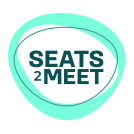Many people speak about the importance of human collaboration these days – but what is that and how does it actually look like in practice? Human Collaboration through co-creation is one of the most exciting developments in the 21st century economy.
The way we are working today is changing faster than ever before. Results are problems which are not only visible in classical organizations. The number of unsatisfied and psychologically struggling employees is growing. Burnout is just one of the worrying symptoms of this development, coming with high costs. Disengagement is equally expansive and creates not only monetary costs. Universities and traditional education fail to deliver models, tools and not at least attitudes with values that are needed for human collaboration under these new economical circumstances. For most of us it is obvious that a change in the way we live and collaborate together has to happen.
But what does that even mean? Terms like ‘hierarchy’ are strongly discussed. This also includes the role of the founder in organizations. See also this article.
To stay successful in unpredictable future circumstances we have to urgently ask ourselves what roles and functions we need as well as how and with which purpose we work together. Besides all technical innovations, we need to innovate socially NOW.
Implementing Agile and Lean approaches in classical structures is a start and yet does not help in solving our co-creation issue. The methods mentioned help organizations creating fantastic results by optimizing the flow of value to customers but it takes much more to be a healthy and successful collaboration in the long run. On a human and on an economical level.
Navigating a world of exponentially increasing complexity and speed of change requires us to take into account as much data and knowledge as possible while acting as dynamically as we want. Younger generations want to create value besides growth with their work and life in a significant different way. Their social connections show great creative vitality and unleash an enormous amount of energy. We see more and more people who have clearly chosen how they want to go about with themselves, their environment and other people.
A good Ted talk for an example that people want to add value at work
Educational pioneers at Knowmads Business School co-created a program to learn models and approaches which many social innovative companies already use. They decided to go for understanding the big picture of human collaboration and the consciousness levels through the spiral dynamics model. (Another blogpost about SD will follow tomorrow) Therefore they have invited Peter Merry to their school. He will give a two days workshop on the 11th and 12th of September. They created a frame where people learn also about organizational governance, including the advantages and disadvantages of holacracy. The innovation and change processes according the Theory U Model to not be stuck in the patterns of past experiences. Of course agile teamwork is needed to move in those frames as efficient as possible. To give as many people as possible the chance to participate the gained knowledge and also to share the experience with people from all over Europe there also will be an Unconference about the future of organizations.
Catch up with up-to date approaches and hands on tools with super experienced workshop givers from all over the world. In all the whole field from dealing with strategy, change, decision making, HR and project management is covered. If you want to gain more information about the series “Lead and organize in the 21st century visit
https://www.facebook.com/KnowmadsExperience?fref=ts
http://www.meetup.com/knowmadsexperience












